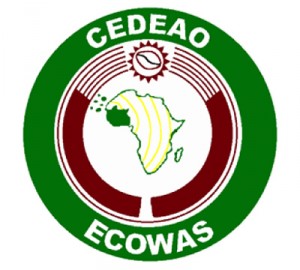ECOWAS member states discuss trade and transit facilitation
 Representatives of ECOWAS member states have completed discussions in Accra aimed at unlocking the challenges facing the trade corridors in West Africa.
Representatives of ECOWAS member states have completed discussions in Accra aimed at unlocking the challenges facing the trade corridors in West Africa.
The technical workshop, under the Improved and Facilitated Trade in West Africa Project – a sub-regional project funded by the European Union – was co-hosted by ECOWAS and the World Bank Group to share best practices in implementing reforms that facilitate trade, and develop an action plan to improve trade facilitation.
It attracted representatives from ECOWAS, the West Africa Economic Monetary Union, the European Union, the World Bank Group, and stakeholders from the public and private sectors along the three main trade corridors in Benin, Burkina Faso, Côte d’Ivoire, Niger, and Ghana.
The main themes included enhancing the flow of transit trade by managing trade corridors, efficient ports and effective border crossings; customs information exchange mechanisms between neighbouring countries; increasing transparency of trade procedures; and promoting collaboration between national border agencies.
The Country Manager of the International Finance Corporation for Ghana, Togo, Benin, Burkina Faso and Niger, Ronke-Amoni Ogunsulire said: “West African countries have enormous potential to strengthen competitiveness and increase trade flows, which can drive growth, reduce poverty, and deliver jobs to the region.”
“The World Bank Group is pleased to be working in partnership with regional organizations, member states, the private sector and development partners to help these countries unlock transit challenges along key trade corridors, and improve their competitiveness within the global economy.”
The Improved and Facilitated Trade in West Africa Project is a €3.5 million four-year initiative launched in November 2014 to support ECOWAS improve trade in the region, specifically, transit trade along the region’s major trade corridors, by reducing the time and cost to trade, and increasing border agency cooperation and coordination, to encourage a better flow of goods within the region, and with international trading partners.
“The fact the European Union is financing this event is testimony of the importance we give to the promotion of the private sector as an engine for an economic and social development of West Africa. Our support to improving trade conditions is a priority of the EU cooperation with the region,” Delphine Aupicon, Programme Officer, Macro-economic and Trade Section of the EU, who represented Ambassador William Hanna, the Head of the EU Delegation to Ghana, said.
By Emmanuel Odonkor
